One World Unspoken
One World Unspoken is a season of films exploring our relationship to the environment. These films use minimal or no dialogue to provide a more immersive cinema experience and are enhanced by their memorable music soundtracks. This autumn the UK is hosting the forthcoming COP26 Climate Change Conference in Glasgow, and this curated programme acts as a timely intervention to help raise awareness and encourage us as witnesses to stop, look, listen and think about how we relate to the challenges ahead.
Six years in the making and regarded as an arthouse classic, Koyaanisqatsi (1982) boldly swerved away from any narrative, plot or character. Godfrey Reggio’s contrasting imagery of natural and man-made environments is still much imitated and remains a must-see on the big screen. More recently, Aquarela (2019) focuses on the power of water as director Viktor Kossokovsky’s eulogy to climate change uncompresses time: giant icebergs creak and groan as they thaw in the vast oceans which become confrontational vertiginous waves. Thoughts and feelings are expressed by actions in the Studio Ghibli animation The Red Turtle (2016). Director Michaël Dudok de Wit also challenges our temporal expectations with a mystical and almost metaphorical story of a man stranded on a desert island and his relationship to the world about him. Latcho Drom (1992) is an exuberant musical odyssey where we follow the route of the Roma Gypsies as they migrate across eight countries. Apart from a few subtitled song lyrics it relies mainly on images, music and gestures - a universal language that, like Gypsy culture itself, traverse continents and centuries.
Curated and programmed as part of the MA in Film Studies, Programming and Curation these films will be screened at The Genesis and Ciné Lumière in London.
Yvonne Wootton
Film Programmer
Artwork by Emma Plant
Facebook: @OneWorldUnspoken
Twitter: @1world_unspoken
- Sunday 17 October | The Red Turtle | Cine Lumiere | 1:30pm
THE RED TURTLE (La Tortue Rouge)
Dir: Michaël Dudok de Wit | Japan/France | 2016 | 80 mins
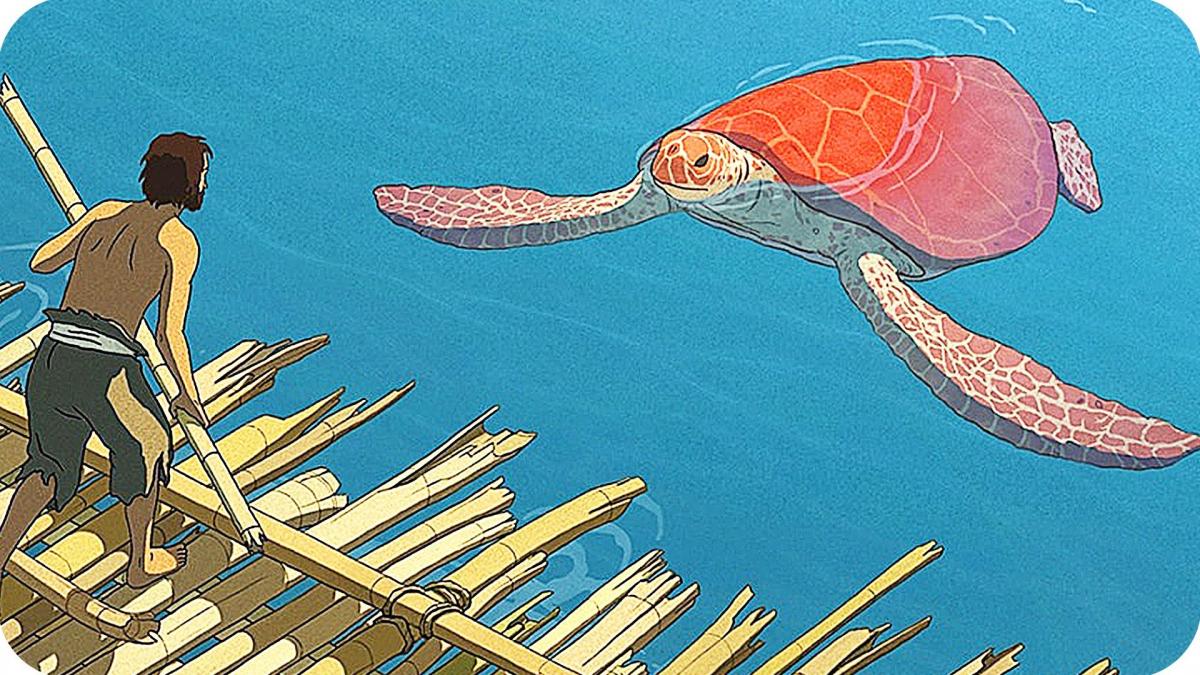 The Red Turtle is an animated fable about a man shipwrecked on a desert island who repeatedly tries to escape. The magical realism when he meets a giant, red shapeshifting turtle is heightened by the impressive sound design and stunning artwork. There is no dialogue (apart from “Hey!”) and the haunting soundtrack by Laurent Perez del Mar captures both the intimacy and grandiose nature of the narrative. The direction is by UK-based Dutch animator Michaël Dudok de Wit who collaborated with the famous award winning Japanese animation company, Studio Ghibli.
The Red Turtle is an animated fable about a man shipwrecked on a desert island who repeatedly tries to escape. The magical realism when he meets a giant, red shapeshifting turtle is heightened by the impressive sound design and stunning artwork. There is no dialogue (apart from “Hey!”) and the haunting soundtrack by Laurent Perez del Mar captures both the intimacy and grandiose nature of the narrative. The direction is by UK-based Dutch animator Michaël Dudok de Wit who collaborated with the famous award winning Japanese animation company, Studio Ghibli. Appealing to all ages, with themes about nature, human expectation, acceptance and the power of companionship, the film was Oscar nominated for Best Animated Feature. Mark Kermode’s 2017 review in The Guardian stated “… this is a film that respects the sound of silence. It is a work of art which transcends boundaries of language, culture, geography and age.”
This screening will include an exclusively recorded Q & A with director Michaël Dudok de Wit.
- Wednesday 20 October | Aquarela | Genesis | 6:30pm
AQUARELA
Dir: Viktor Kossakovsky | UK/Germany/Denmark/US | 2018 | 89 mins
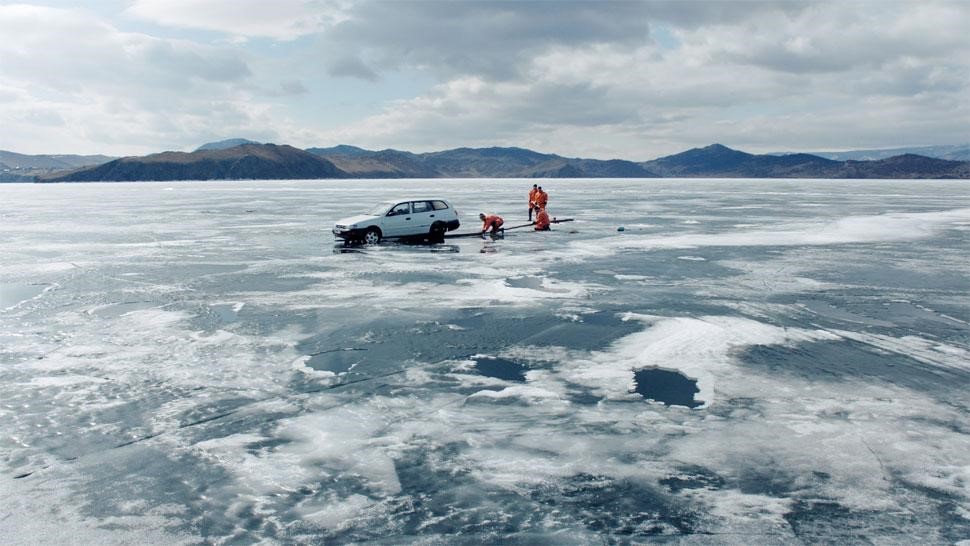 Director Viktor Kossakovsky braves the precarious frozen waters of Russia's Lake Baikal and throes of Hurricane Irma in Miami to film the power of water on the planet, capturing a dramatic life force or destructive hurricane floods. It’s an experiential study of climate change, both terrifying and thrilling as we witness up close extraordinary footage of collapsing glaciers, violent storms, flooded landscapes and rising sea levels. Visually arresting, much of it was filmed at 96 fps and this screening will be at the heightened experience of 48 fps allowing incredible detail. To add to the amazement, wonder and fear, it is accompanied by visceral audio effects with an original dramatic cello-metal score from Finnish violinist/composer Eicca Toppinen and his band Apocalyptica. This voyage of slow cinema mirrors the creeping rise of sea levels and disintegration of the ice floes which ultimately affect us all.
Director Viktor Kossakovsky braves the precarious frozen waters of Russia's Lake Baikal and throes of Hurricane Irma in Miami to film the power of water on the planet, capturing a dramatic life force or destructive hurricane floods. It’s an experiential study of climate change, both terrifying and thrilling as we witness up close extraordinary footage of collapsing glaciers, violent storms, flooded landscapes and rising sea levels. Visually arresting, much of it was filmed at 96 fps and this screening will be at the heightened experience of 48 fps allowing incredible detail. To add to the amazement, wonder and fear, it is accompanied by visceral audio effects with an original dramatic cello-metal score from Finnish violinist/composer Eicca Toppinen and his band Apocalyptica. This voyage of slow cinema mirrors the creeping rise of sea levels and disintegration of the ice floes which ultimately affect us all.This screening will include a specially recorded introduction by Aimara Reques, Chief Executive of Aconite Productions
- Thursday 21 October | Koyaanisqatsi | Genesis | 9:00pm
KOYAANISQATSI
BOOK NOW
Dir: Godfrey Reggio | US | 1982 | 87 mins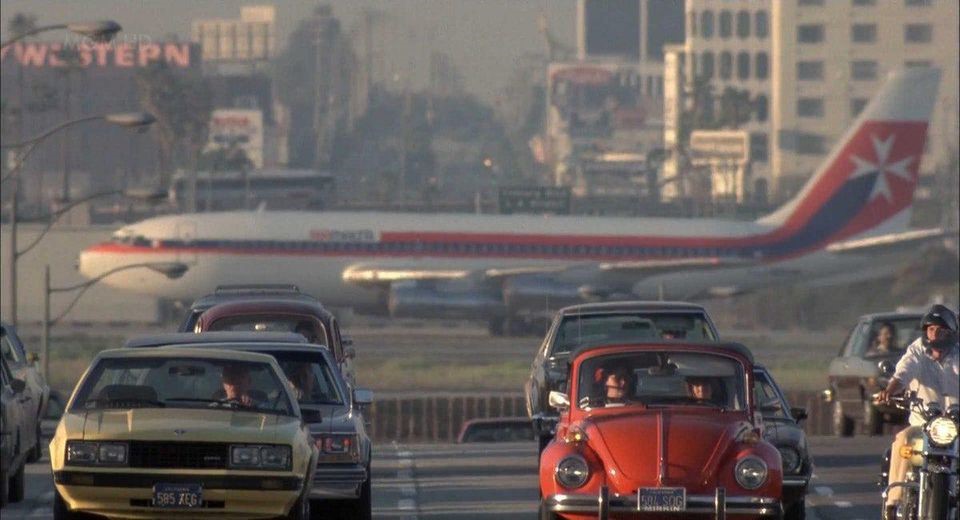 As Koyaanisqatsi approaches its 40th anniversary, the now iconic shots of the natural world with its frenetic human occupation was ambitious and groundbreaking at the time and is still a must-see on the big screen. The first in Godfrey Reggio’s Qatsi trilogy, depicting different aspects of the relationship between humans, nature and technology, this experimental and influential film represented a ‘life out of balance’ as defined by the native American Hopi language. Frequently using time lapse and slow motion on landscapes, cityscapes and people, Ron Fricke’s mesmerising visuals are accompanied by an equally hypnotic and memorable Philip Glass soundtrack. Director Reggio explained the lack of dialogue by stating "It's not for lack of love of the language that these films have no words. It's because, from my point of view, our language is in a state of vast humiliation. It no longer describes the world in which we live.”
As Koyaanisqatsi approaches its 40th anniversary, the now iconic shots of the natural world with its frenetic human occupation was ambitious and groundbreaking at the time and is still a must-see on the big screen. The first in Godfrey Reggio’s Qatsi trilogy, depicting different aspects of the relationship between humans, nature and technology, this experimental and influential film represented a ‘life out of balance’ as defined by the native American Hopi language. Frequently using time lapse and slow motion on landscapes, cityscapes and people, Ron Fricke’s mesmerising visuals are accompanied by an equally hypnotic and memorable Philip Glass soundtrack. Director Reggio explained the lack of dialogue by stating "It's not for lack of love of the language that these films have no words. It's because, from my point of view, our language is in a state of vast humiliation. It no longer describes the world in which we live.”- Tuesday 26 October | Latcho Drom | Ciné Lumière | 6:00pm
Dir: Tony Gatlif | France | 1993 | 103 mins
BOOK NOW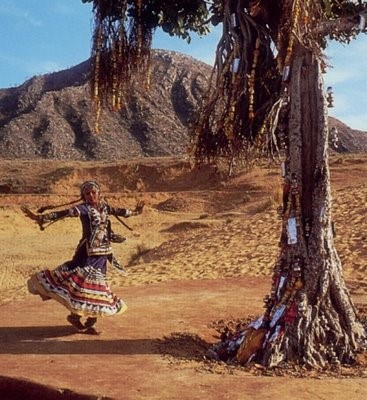 Latcho Drom is a musical odyssey following the ‘safe journey’ by Romani people from east to west across three continents, as they adapt to different environments and experience being the ‘other’ in someone else’s land. Using diegetic music and traditional dance, the young and old celebrate the cultural values of family, love, loneliness, and persecution whilst the seasons become a backdrop to their nomadic lifestyle. Travelling across the landscapes of India, Egypt, Turkey, Romania, Hungary, Slovakia, France and Spain, the only constant in their culture is the continuous journey to a new place. This constant is represented in the film through the use of repetitious symbolic images such as migrating birds, wheels, roads and railways.
Latcho Drom is a musical odyssey following the ‘safe journey’ by Romani people from east to west across three continents, as they adapt to different environments and experience being the ‘other’ in someone else’s land. Using diegetic music and traditional dance, the young and old celebrate the cultural values of family, love, loneliness, and persecution whilst the seasons become a backdrop to their nomadic lifestyle. Travelling across the landscapes of India, Egypt, Turkey, Romania, Hungary, Slovakia, France and Spain, the only constant in their culture is the continuous journey to a new place. This constant is represented in the film through the use of repetitious symbolic images such as migrating birds, wheels, roads and railways.Referring to the film as a “tone poem”, director Tony Gatlif (who is himself Kabil Roma) discreetly captures the concepts of nation, borders and everyday discrimination. Jonathan Romney in The Guardian said, “There is something particularly exciting about a film that doesn’t simply offer a burst of cultural difference, but actually creates a picture of the world as you’ve never seen it before.”
This screening will be introduced by Garth Cartwright, author Princes Amongst Men: Journeys With Gypsy Musicians (Serpents Tail).
- Interviews and Questionnaire
The Red Turtle: Full Q & A with Michael Dudok de Wit
Aquarela: Full Introductory Q & A with Aimara Reques
- Supplemental Information
There is currently a lot of talk about the environment and climate change in the run up to COP 26 which will be held in Glasgow from 31 October to 12 November. If after seeing these films you want to find out more and get involved in the debate, here are a few pointers.
Carbon Brief is a UK-based website covering the latest developments in climate science, climate policy and energy policy. Specialising in clear, data-driven articles and graphics to help improve the understanding of climate change, both in terms of the science and the policy response. It publishes a wide range of content, including science explainers, interviews, analysis and fact checks, as well as daily and weekly email summaries of newspaper and online coverage. Its director and editor, Leo Hickman, cites Koyaanisqatsi as his favourite film, describing it as “the quintessential environmental movie - a transformative meditation on the current imbalance between humans and the wider world that supports them.”
Friends of the Earth is an international community dedicated to protecting the natural world and the wellbeing of everyone in it. Leading campaigns, providing resources and information about the environmental problems facing us all. Grassroots groups are actively involved in national and local campaigns to protect the natural world and are engaging with their communities on issues like recycling and conservation.
https://friendsoftheearth.uk/take-action/join-group-near-you
BBC News has introduced a Climate page to its news website, with comprehensive coverage in the run up to COP 26 of science, environment and sustainability around the world.
https://www.bbc.co.uk/news/science-environment-56837908
The Earth Here and Now is a series of rendezvous on climate change from 10 November to 8 December at the Institut français du Royaume-Uni with French and British thinkers. They will discuss the way one can rethink ecological activism and practices, by imagining new types of alliances and cohabitation with the living world. Highlights include a discussion between Vinciane Despret, author of Living as a Bird and social anthropologist Garry Marvin on 10 Nov and civil and between environmental engineer Malcom Ferdinand and Lecturer Shela Sheikh on 8 Dec.
https://www.institut-francais.org.uk/cine-lumiere/whats-on/festivals-series/the-earth-here-and-now/
Aconite Productions are a Scottish film production company who focus on crafting films of global significance for international distribution. Reconnecting with nature together with an awareness of life choices and how they affect those around us feature strongly in films like Aquarela. Forthcoming projects include the healing power of wild swimming and the neurobiology of plants.
https://www.aconiteproductions.com/films- If you like the films in ONE WORLD UNSPOKEN, you may also like these…
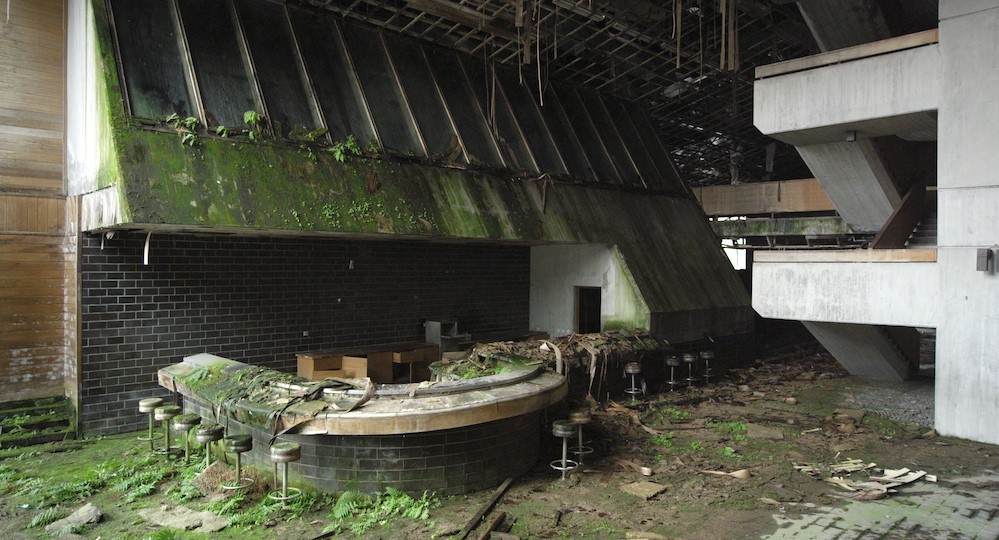 HOMO SAPIENS
HOMO SAPIENS
Directed by Nikolaus Geyrhalter (2016) 94 minsThe finiteness and fragility of human existence and the end of the industrial age are represented by static shots of empty rooms, ruins and decaying spaces as they are gradually reclaimed by nature after the inhabitants have gone. Regarded as a documentary and science fiction because its imagery shows a crumbling, dystopian desolation, Geyrhalter’s observational films are often about the ecological battlegrounds between humans and the environment. Sight and Sound said “His preferred aesthetic strategy involves shooting from a distanced and fixed camera position to create monumental tableaux that are at once impressive and terrifying, and a lot of the films' moral and political power derives from the disconcerting tension between these two poles."
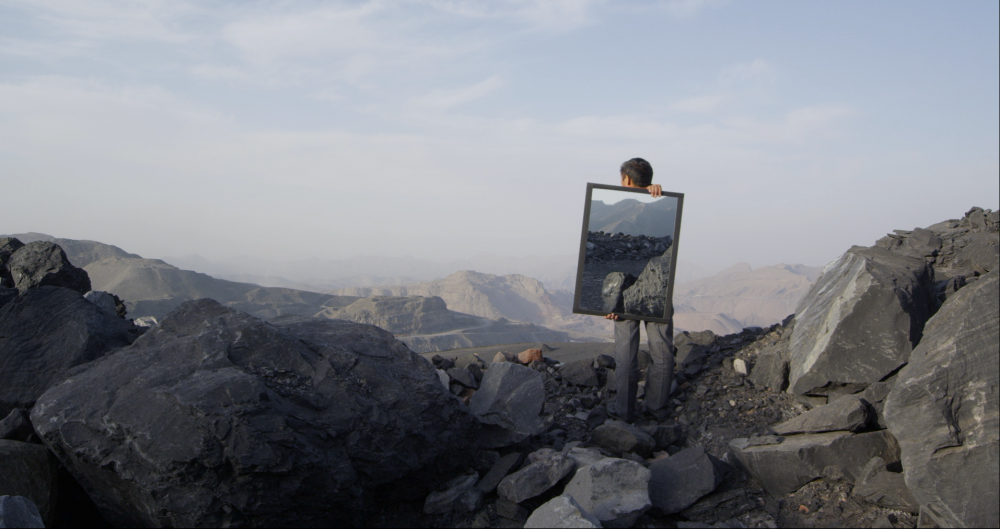 BEHEMOTH
BEHEMOTH
Directed by Zhaio Liang (2015) 95 minsLiang’s documentary reflects the environmental, sociological and public health effects of coal mining in China and Inner Mongolia. Its sometimes surreal photography contains allusions to Dante’s Divine Comedy, adopting both its character archetypes and general plot structure of Hell, Purgatory and Paradise. Clear in its messaging about the ravages of the land and people’s health and lifestyle, Lee Marshall in Screen Daily wrote “This metaphysical vein is also present in two recurrent magic-realist tropes, one featuring static long shots of a naked man curled foetally in the barren landscape, the other a sort of pilgrim everyman figure who walks through the film’s settings with a mirror on his back – a dig, perhaps, at China’s relentless, blinkered progress, which can’t or won’t look at what it’s leaving behind for the future.”
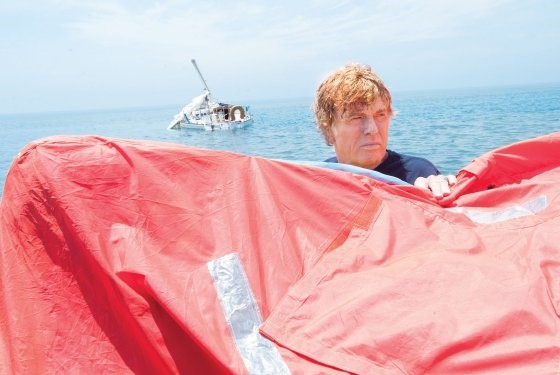 ALL IS LOST
ALL IS LOST
Directed by J C Chandor (2013) 106 minsRobert Redford plays an anonymous sailor whose yacht hits a floating shipping container in the middle of the Indian Ocean. The isolation is palpable with the use of vast seascapes and immersive sound design. What begins as a visceral survival story about coping with a desperate situation becomes a film about existentialism. Geoffrey Macnab’s review in The Independent said “There are beautiful sunsets and cloudscapes as well as underwater sequences which show the marine life alongside Redford’s amoeba-shaped dinghy. The sound editing is remarkably detailed and does much of the work that dialogue would do in a more conventional film. Every creak of the boat or hiss of the wind is registered. Alex Ebert’s ambient, haunting music gives the film an elegiac feel”.

